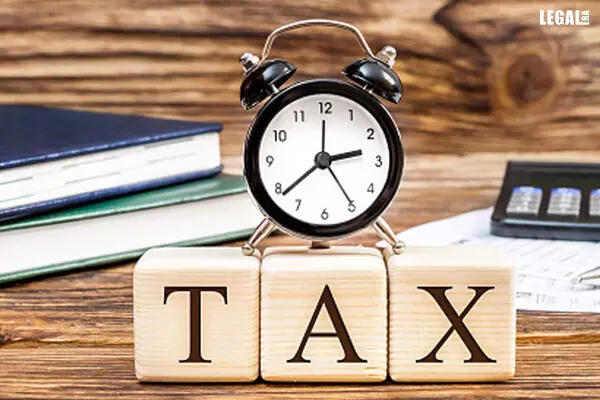- Home
- News
- Articles+
- Aerospace
- AI
- Agriculture
- Alternate Dispute Resolution
- Arbitration & Mediation
- Banking and Finance
- Bankruptcy
- Book Review
- Bribery & Corruption
- Commercial Litigation
- Competition Law
- Conference Reports
- Consumer Products
- Contract
- Corporate Governance
- Corporate Law
- Covid-19
- Cryptocurrency
- Cybersecurity
- Data Protection
- Defence
- Digital Economy
- E-commerce
- Employment Law
- Energy and Natural Resources
- Entertainment and Sports Law
- Environmental Law
- ESG
- FDI
- Food and Beverage
- Gaming
- Health Care
- IBC Diaries
- In Focus
- Inclusion & Diversity
- Insurance Law
- Intellectual Property
- International Law
- IP & Tech Era
- Know the Law
- Labour Laws
- Law & Policy and Regulation
- Litigation
- Litigation Funding
- Manufacturing
- Mergers & Acquisitions
- NFTs
- Privacy
- Private Equity
- Project Finance
- Real Estate
- Risk and Compliance
- Student Corner
- Take On Board
- Tax
- Technology Media and Telecom
- Tributes
- Viewpoint
- Zoom In
- Law Firms
- In-House
- Rankings
- E-Magazine
- Legal Era TV
- Events
- News
- Articles
- Aerospace
- AI
- Agriculture
- Alternate Dispute Resolution
- Arbitration & Mediation
- Banking and Finance
- Bankruptcy
- Book Review
- Bribery & Corruption
- Commercial Litigation
- Competition Law
- Conference Reports
- Consumer Products
- Contract
- Corporate Governance
- Corporate Law
- Covid-19
- Cryptocurrency
- Cybersecurity
- Data Protection
- Defence
- Digital Economy
- E-commerce
- Employment Law
- Energy and Natural Resources
- Entertainment and Sports Law
- Environmental Law
- ESG
- FDI
- Food and Beverage
- Gaming
- Health Care
- IBC Diaries
- In Focus
- Inclusion & Diversity
- Insurance Law
- Intellectual Property
- International Law
- IP & Tech Era
- Know the Law
- Labour Laws
- Law & Policy and Regulation
- Litigation
- Litigation Funding
- Manufacturing
- Mergers & Acquisitions
- NFTs
- Privacy
- Private Equity
- Project Finance
- Real Estate
- Risk and Compliance
- Student Corner
- Take On Board
- Tax
- Technology Media and Telecom
- Tributes
- Viewpoint
- Zoom In
- Law Firms
- In-House
- Rankings
- E-Magazine
- Legal Era TV
- Events
Supreme Court Upholds Telangana High Court Verdict Holding VAT (Second Amendment) Act Unconstitutional

Supreme Court Upholds Telangana High Court Verdict Holding VAT (Second Amendment) Act Unconstitutional
States that the intent of the Parliament in introducing the Goods and Services Tax Act was to avoid a multiplicity of levies
The Supreme Court has upheld the verdict of the Telangana High Court, which stated that the state Value Added Tax (Second Amendment) Act, 2017 was unconstitutional.
While hearing the appeals against the judgments of the Telangana High Court and the Bombay High Court, a bench comprising Justice S Ravindra Bhat and Justice Aravind Kumar ruled that the amendments were correctly held void for want of legislative power.
In July 2022, the Telangana High Court bench of then Chief Justice Ujjal Bhuyan and Justice P Madhavi Devi had set aside the amended VAT Act and notices issued under it. The judges had maintained that while bringing in the Goods and Services Tax (GST) regime, the intention of the Parliament was to avoid multiplicity of taxes by subsuming those indirect taxes in a single tax.
The High Court observed that after the 101st Constitution Amendment Act came into force in 2016, the State legislature’s competence was truncated. Therefore, the latter did not have the power to legislate the Second Amendment Act. Once the VAT Act was repealed, except in limited categories, it could not be amended.
It further held that Section 19 of the Constitution Amendment Act was not a source of power to enable the State legislature to enact the Second Amendment Act, since it was a transitional provision.
Thus, the Apex Court ruled, “The ordinance’s validity and effect might not have been suspected on the date of its promulgation; yet the issue is that when it was approved and given shape as an amendment, the State legislature ceased to possess the power. By that time, the State GST and the Central GST Acts had come into force (on 01.07.2017). Therefore, Section 19 ceased to be effective. The original entry (Entry 54 of the State list) ceased to exist.”
The Top Court held:
i) Section 19 of the Constitution (101st Amendment) Act, 2016 and Article 246A enacted in the exercise of the constituent power, formed part of the transitional arrangement for the limited duration of its operation. It had the effect of continuing the operation of inconsistent laws for the period(s) specified, and by virtue of its operation, allowed state legislatures and Parliament to amend or repeal the existing laws.
ii) Since other provisions of the Amendment Act, had the effect of deleting heads of legislation, from List I and List II (Seventh Schedule to the Constitution of India), both Section 19 and Article 246A reflected the constituent expression that the existing laws would continue and could be amended. The source or fields of legislation, to the extent they were deleted from the two lists for a brief while, were contained in Section 19. As a result, there were no limitations on the power to amend.



